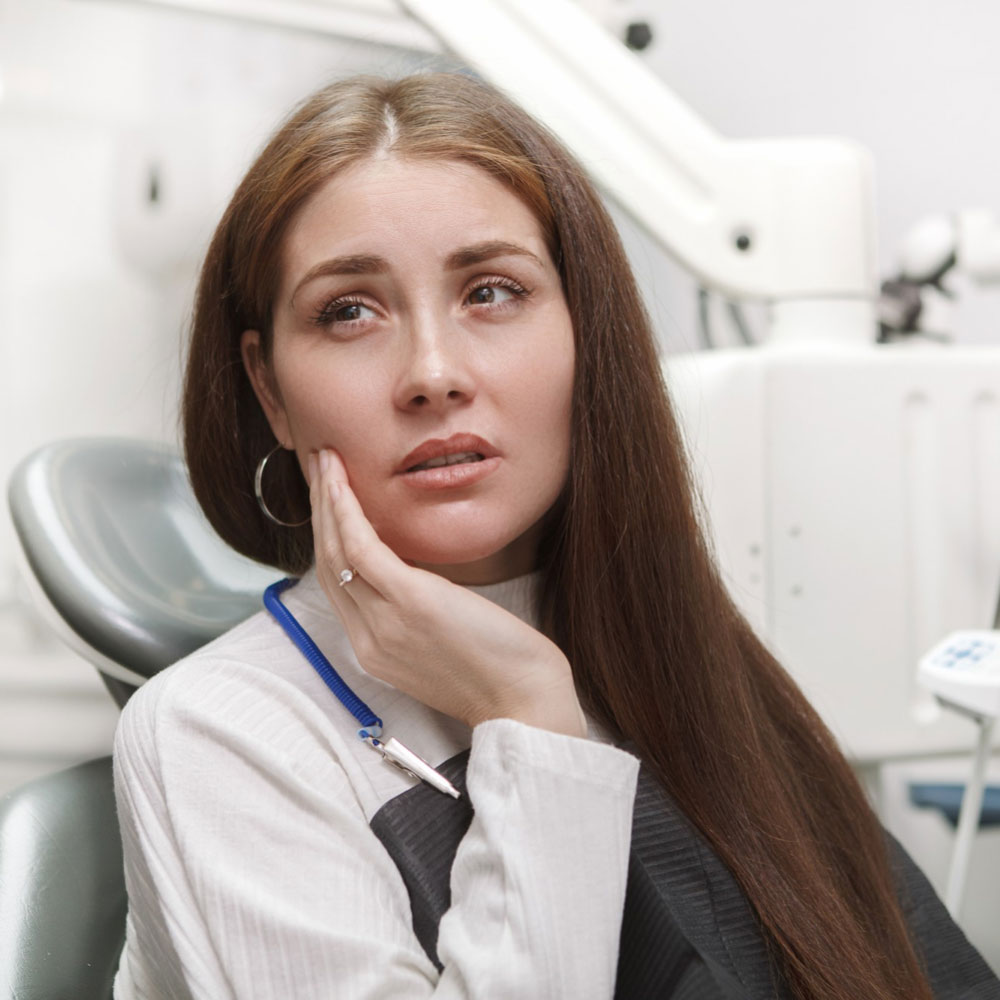
What is ANUG?
Acute Necrotising Ulcerative Gingivitis, shortly known as ANUG, is a debilitating and painful infection of the gums. It is a severe gum infection that causes swelling, ulcers and necrosis (dead tissues) in the mouth. ANUG is very frequently found in smokers and individuals with weakened immune systems and ignored dental hygiene.
ANUG was prevalent in the earlier times, especially in soldiers on the war front; therefore, this disease is also called Trench Mouth. This can be attributed to excessive stress and smoking. However, this gum infection has become quite rare nowadays due to advances in oral health care and increased awareness.
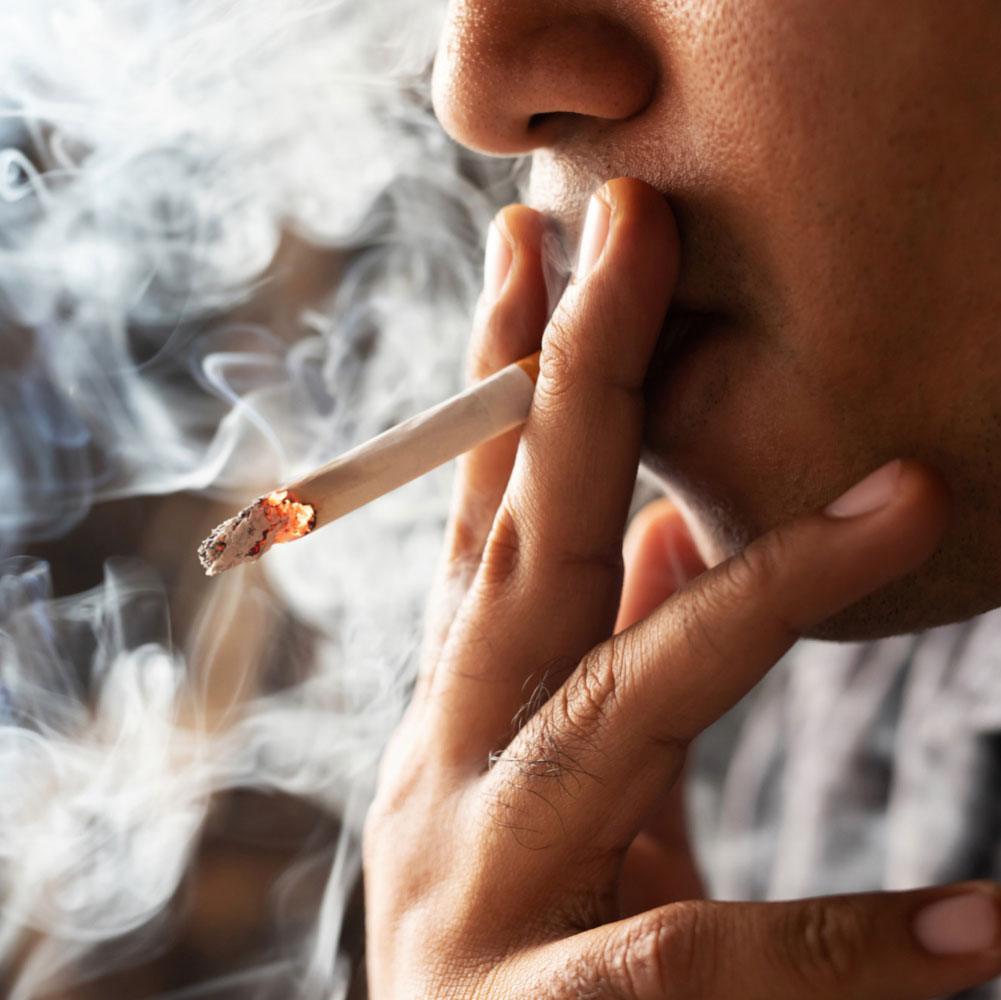
What causes ANUG?
Our mouth is a natural habitat for a plethora of bacteria and microbes. Typically, these microbes are harmless and coexist in our mouths without giving us any trouble. However, as seen with HIV-AIDS, malignancies and other medical conditions, a compromised immune system predisposes our oral cavity to opportunistic infection. Acute necrotising ulcerative gingivitis, commonly known as ANUG, is one such infection, which is caused by a mixed bacterial infection. The organisms most widely held responsible for ANUG are spirochetes such as treponema.
A compromised and weakened immune system in combination with stress forms an ideal condition for such bacterial infection. Poor and neglected oral hygiene, lack of sleep, poor nutrition combined with emotional or physical stress can predispose the oral cavity to ANUG.
ANUG often starts with simple gum diseases like gingivitis and progress to a full blow infection when a person experiences copious amounts of stress ( as commonly seen with military personnel). ANUG is much more common in smokers than non-smokers.
Signs and symptoms of ANUG
ANUG is known to display characteristic signs and symptoms. If you happen to experience or notice any of these symptoms, please schedule a consultation with our dentist today.
- ANUG generally starts with gum swelling, which progress to more severe manifestations.
- The tip of the gums between the teeth appears to have a punched out ulcerative lesion.
- The punched out or crater-like ulcers are usually covered by a layer of dead tissues (necrotic tissues), which appears greyish.
- These ulcers are present with severe gum pain and can sometimes even cause a burning sensation.
- The gums bleed easily, especially if the ulcer covering is disturbed. You will notice bleeding in your mouth when you perform activities like brushing or even eating.
- The gums are red, swollen and tender.
- Loose teeth.
- The pain may also radiate to the entire jaw.
- Foul taste.
- Bad and foul-smelling breath.
- The infection can also lead to swollen lymph nodes under the jaw.
- Mild fever.
- Persistent fatigue and a generalised feeling of illness.
- Excessive saliva production.
Risk factors for ANUG
It is crucial to recognise the risk factors for ANUG for its prevention and effective management. ANUG is known to commonly affect younger individuals, often under the age of 35. That being said, it is possible to find it in the older age group as well. Some of the factors which increase the risk of Trench Mouth are:
- Poor and neglected oral hygiene.
- Lack of dental care.
- Poor diet and nutritional deficiencies.
- Presence of infections in the throat, nose and mouth.
- Emotional or physical stress.
- Smoking and tobacco consumption,
- Weakened or compromised immune system (for example, due to HIV-AIDS, diabetes or immunosuppressive drugs).
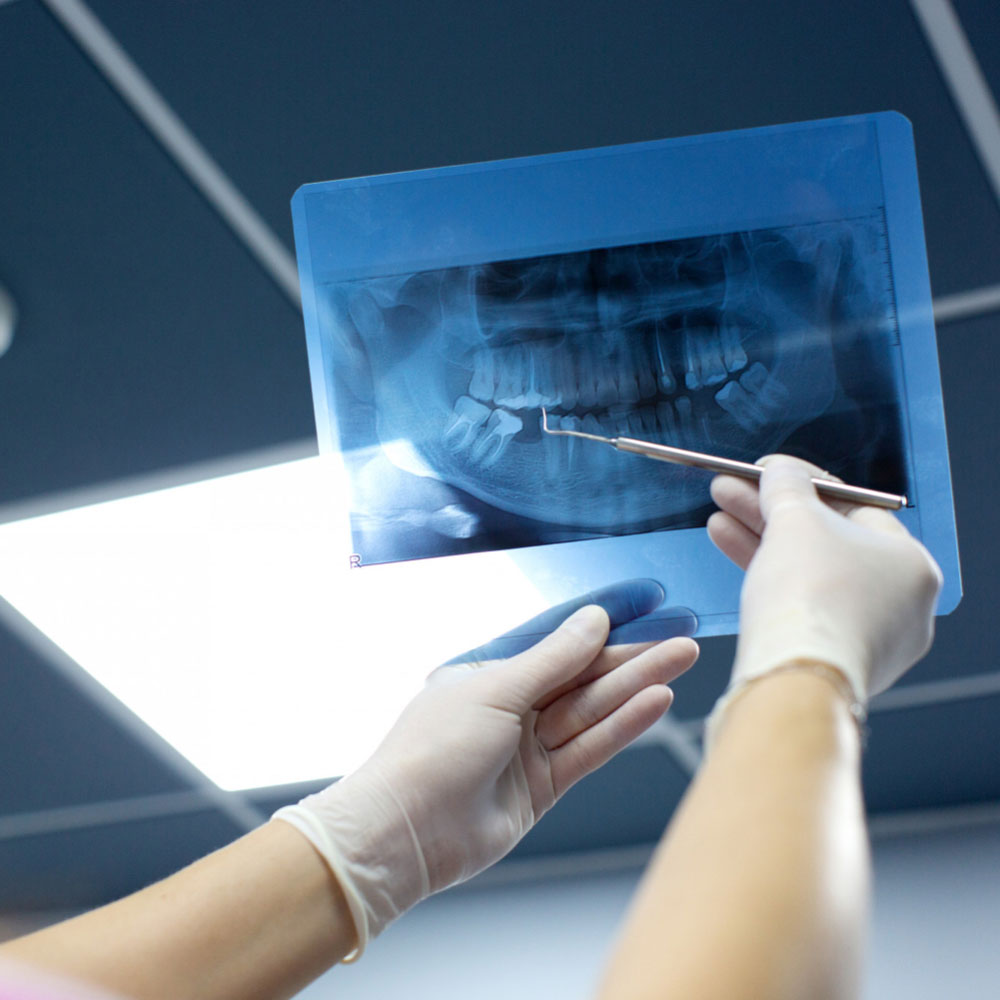
How is ANUG or Trench Mouth diagnosed?
Acute necrotising ulcerative gingivitis is usually diagnosed by oral examination. Our dentist may also probe your gums to see the infection level and how easily they bleed. They may also take some X-rays to determine the extent of infection and how much it has progressed.
Our dentist will also evaluate your medical and personal history to determine the risk factors that led to ANUG. They may also order some blood tests and send a gum tissue sample to a pathology lab for confirmation. Our dentist may also refer you to a specialist physician for diagnosis and treatment of underlying conditions. It is imperative to manage the underlying medical conditions for complete treatment and resolution of ANUG.
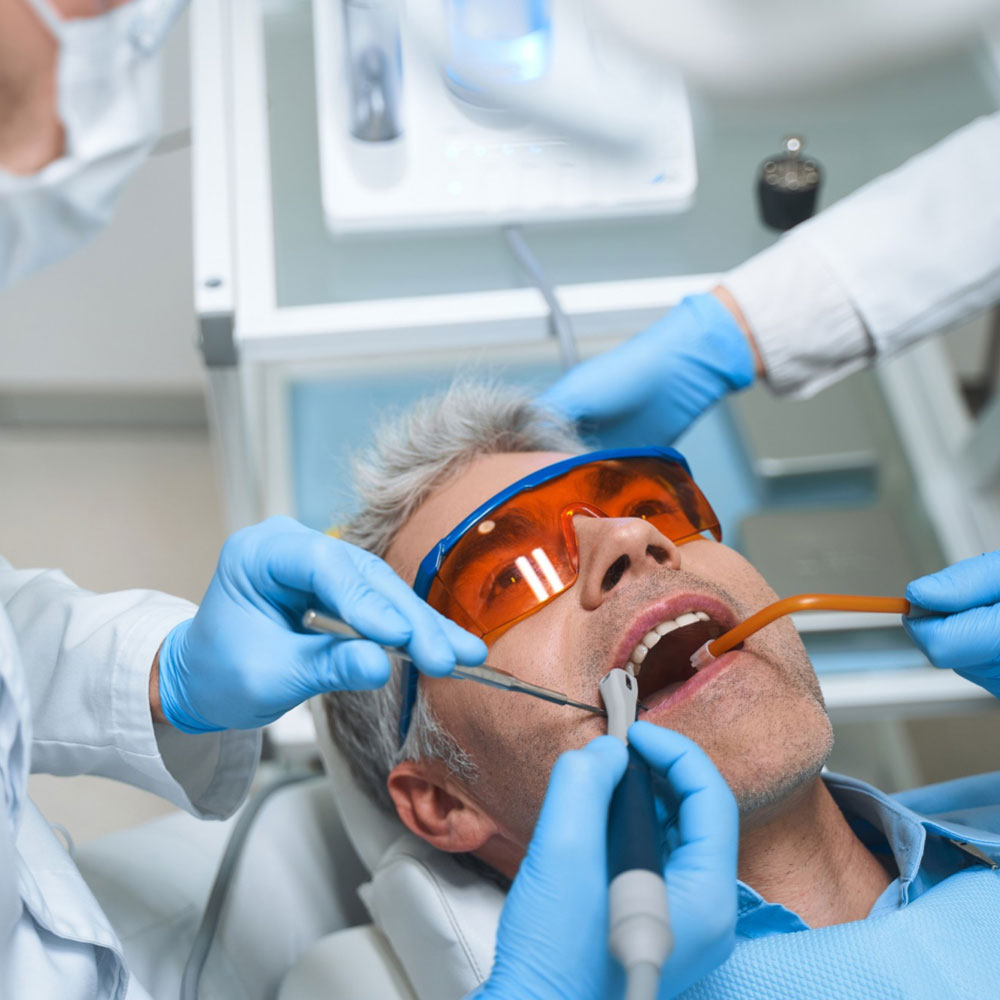
Treatment for ANUG
ANUG can be completely resolved within weeks with the help of our specialist board certified dentist. Once our dentist has determined that you are indeed suffering from Trench Mouth, they will proceed with the treatment.
The dead tissue layer over the gums will be gently removed, which will allow proper healing. Our dentist will also prescribe you specific antibiotics to eliminate the disease-causing bacteria and stop the infection from spreading. Painkillers may also be prescribed for effective gum pain management.
After this, your teeth and gums will be professionally deep cleaned to remove the tartar buildup. Our dentist will also prescribe a medicated oral rinse or hydrogen peroxide rinse for effective antisepsis and removal of dead tissues.
It is recommended that you quit smoking and also avoid spicy food for complete resolution of the infection.
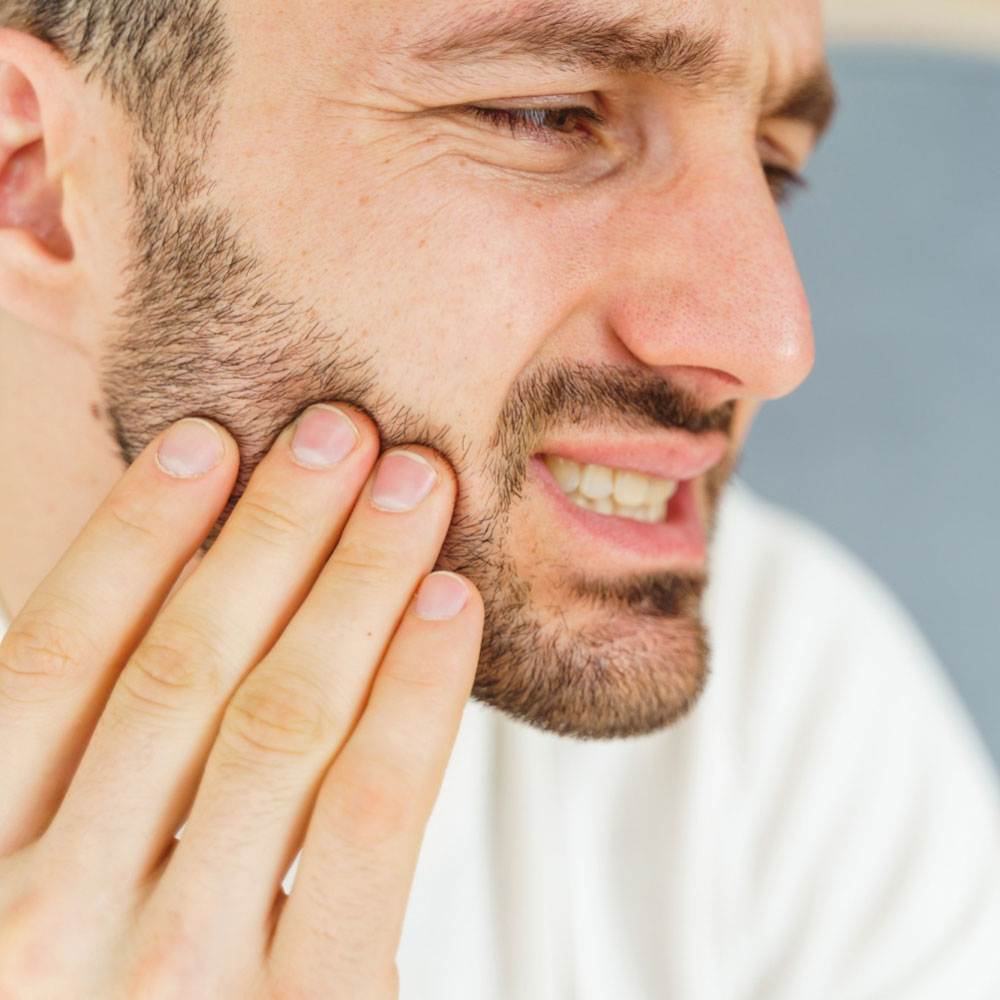
Prognosis and complications of untreated ANUG
If ANUG is left untreated, the infection will progress to destroy the entire periodontium and the jawbone. You will experience loose teeth, which will eventually lead to tooth loss. The disease will slowly invade neighbouring tissues and cause ulceration. The bacteria can enter the bloodstream and cause sepsis, lead to a dangerous, life-threatening condition. The chances of rapid tissue destruction are even higher in people with weak and compromised immune systems.
It is therefore advised that you seek immediate dental help for ANUG. Please schedule an appointment with our dentist at the earliest for effective treatment and prevent the progress of ANUG. Please reach out to us if you have questions or if you would like to know more about our emergency dental treatments.
